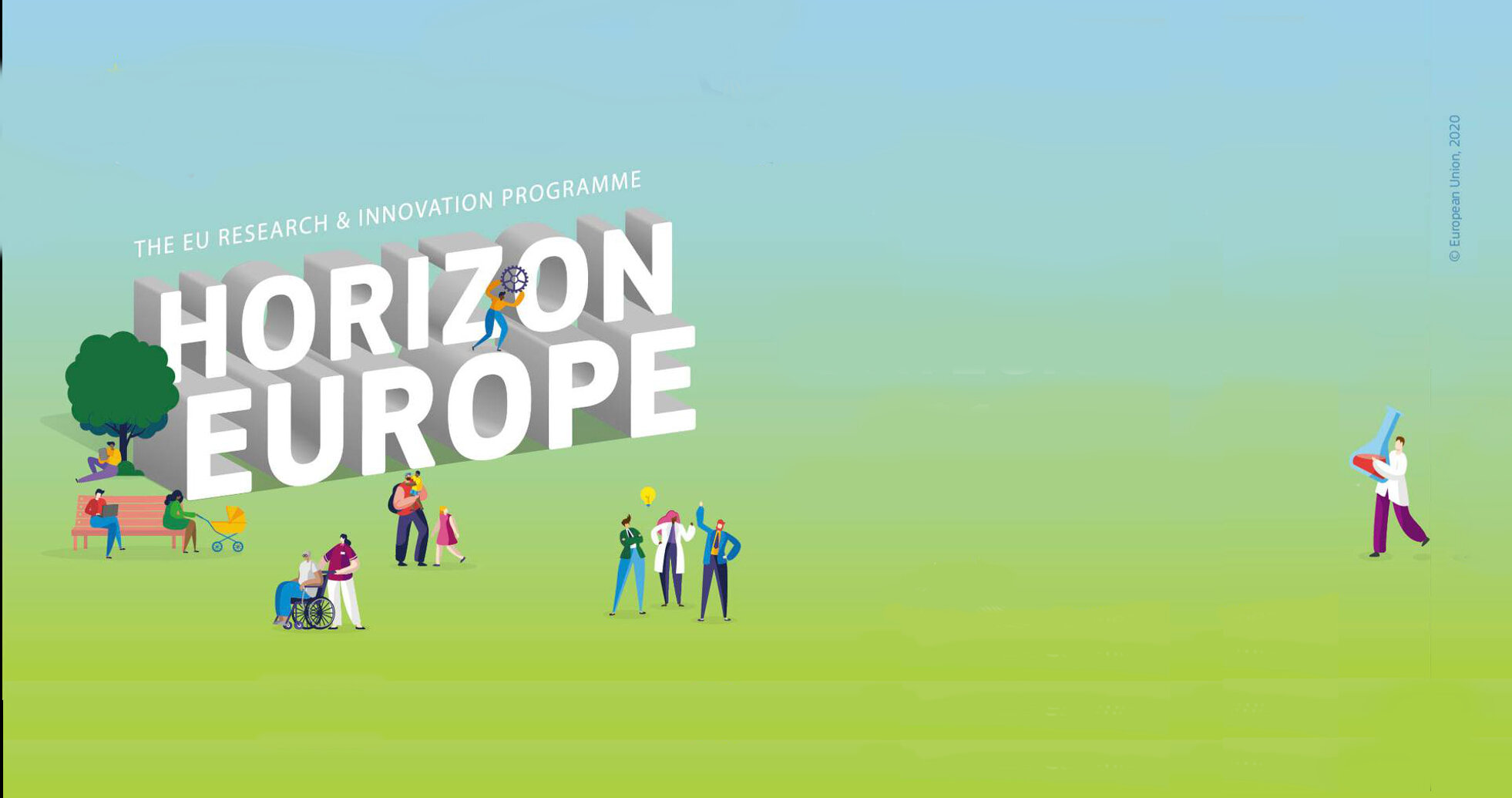
Horizon Europe sees a large increase in funding for carbon removals
On Thursday 24 June 2021, the first round of calls will open for the newly adopted Horizon Europe work programme, with an earmarked €14.7 billion in funding. For the first time a large part of the programme will be dedicated to carbon dioxide removal technologies - a key solution to reverse climate change. Negative Emission Platform and its members are ready to get involved.
June 23, 2021
Horizon Europe, the EU’s flagship R&D&I funding scheme, is one of the most prominent instruments of its kind. It enables technologies to move from the lab to the market with support for early-stage research and innovation up to demonstration with the goal of large-scale deployment and commercialisation.
With this new round of funding, the EU gives itself the means to lead on climate science and innovation on the global stage. The new work programme’s Cluster 5: Climate, Energy and Mobility enables the Commission to support environmental agencies, strengthen the European research agenda on climate technologies, increase transparency and practical usability of the climate knowledge base for all stakeholders.
This comes at a critical period, given that carbon removal technologies would require an annual growth rate of over 55% to reach the levels recommended by the IPCC. It is estimated that delaying the scale up to 2025 would require an annual growth of 80%, while starting such a deployment in 2030 means that carbon removal capacity will need to double every year – a 100% annual growth. This is why we welcome the fact that a good number of calls for proposals support not only R&I of carbon removal methods but go beyond to address deployment barriers of key technologies or to develop their infrastructure.
Negative Emissions Platform is now looking to engage with parties interested in forming a consortium that will enable the development and scaling of carbon removal technologies. Please do get in touch at info@negative-emissions.org
Four calls are directly linked to CDR with a combined budget of €80M.
Opening date: 24 June 2021
Deadline: 17 September
Budget: €24M
Expected outcome:
The applicants should pay particular attention to climate-related challenges at different temporal scales, including potential benefits, risks and feedback (e.g. effects of surface albedo changes) of using carbon dioxide removal strategies, whether nature-based or technological, to stabilise global temperature. In this context, interaction with actions dedicated to carbon dioxide removal (like ongoing EU projects, NEGEM, LANDMARC and OceanNETs, as well as HORIZON-CL5-2022-D1-01-01-two-stage: Carbon Dioxide Removal approaches and Carbon Capture Utilisation and Storage) is encouraged.
Carbon Dioxide Removal (CDR) approaches.
Opening date: 12 October 2021
Deadlines: 10 February 2022 (first stage) 27 September 2022 (second stage)
Budget: €21M
Expected outcome:
Support climate policies through an enhanced understanding of existing and emerging carbon dioxide removal options in terms of their technical readiness, key requirements (land and other resource needs, geographical and geological constraints, primary energy needs, etc.), short- and long-term sequestration potential, permanence, impacts (environmental, social, health, resource depletion, etc.) including potential co-benefits.
Emerging technologies for a climate-neutral Europe.
Opening date: 24 June 2021
Deadline: 19 October 2021
Budget: €20M
Expected outcome:
Project results are expected to contribute to all of the following expected outcomes: available high-risk/high return technologies for a transition to a net GHG neutral EU economy by 2050; knowledge and scientific proof of the technological feasibility of the concept; environmental, social and economic benefits to contribute to R&I strategy and policy forecast; establishing a solid, long-term, dependable European innovation base.
Direct atmospheric carbon capture and conversion.
Opening date: 24 June 2021
Deadline: 19 October 2021
Budget: €15M
Expected outcome:
The call focuses on technological concepts at low “Technological Readiness Levels or TRL (TRL 3 or lower). Activities are expected to achieve TRL 4-5 by the end of the project and to contribute to at least one of the following expected outcomes: increase knowledge of existing/develop new materials for direct atmospheric carbon capture and conversion technologies; or address potential barriers to the incorporation of direct air capture in existing CC(U)(S) concepts; or make direct atmospheric carbon capture and conversion technologies a viable technology to make the EU carbon neutral by increasing the TRL levels of the different technological options.
Additionally, two calls are focusing on Carbon Capture Utilisation and Storage (CCUS), a technology associated with capturing CO2 not from the atmosphere but at the source.
Integration of CCUS in hubs and clusters, including knowledge sharing activities.
Opening date: 24 June 2021
Deadline: 5 January 2022
Budget: €2M
Expected outcome:
Comprehensive information concerning the integration of CCUS in hubs and clusters will facilitate the development of operational sites as from the early 2020's. The project is expected to demonstrate the necessary requirements for CCUS integration in carbon-intensive industries and will promote knowledge sharing activities.
Cost reduction of CO2 capture (new or improved technologies).
Opening date: 24 June 2021
Deadline: 5 January 2022
Budget: €30M
Expected outcome:
The expected outcomes are significant step-change advances in CO2 capture rates, reductions in energy penalty and cost of CO2 capture as well as facilitating safe and economic integration into industrial clusters - which will in a short timeframe allow the uptake of CCUS in the power sector and energy intensive industries.
Finally, one Coordination and Support Action (CSA) call is also relevant to CCS-based removals.
Support to the activities of the ETIPs and technology areas of the SET-Plan.
Opening date: 24 June 2021
Deadline: 5 January 2022
Budget: €9,8M
Expected outcome:
Proposals should address one of the following sectors:
carbon capture storage and use, geothermal systems, hydropower, ocean energy, photovoltaics, renewable fuels & bioenergy, concentrated solar thermal energy (CSP & STE), renewable heating and cooling, wind energy, energy efficiency in industry, energy efficiency in buildings.
Proposals submitted under this topic are encouraged to include actions designed to facilitate cooperation, across Europe, with other projects and to ensure the accessibility and reusability of data produced in the course of the project.
